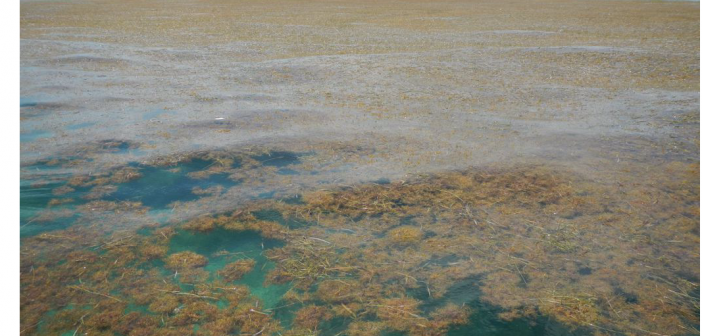The largest patch of seaweed bloom in the world is stretching some 5,500 miles from Africa to the Gulf of Mexico, threatening marine life and coastal communities. A new study from a team of scientists at the University of South Florida said that the historic patch may become “the new normal.” The patch is so huge that in total it weighs 20 million tons, the same as 200 fully loaded aircraft carriers.
The patch is called the Great Atlantic Sargassum Belt (GASB), and it’s made up of floating photosynthetic brown algae. The problem is that such a large amount of Sargassum kills marine life, making it hard for some species to breath. And when the it dies, microalgae sinks to the bottom of the ocean where it can kill coral and seagrasses.
The team of Florida scientists, under Chuanmin Hu, a professor of optical oceanography, studied NASA satellite observations from 2000 to 2018. The first ten years showed isolated patches of Sargassum across the Atlantic, but starting in 2011 they noticed it appearing in new areas and extending farther and farther. For the first time, it stretched all the way across the ocean.
Last summer vast floating islands of Sargassum blanketed entire sections of the tropical Atlantic, and it threatened shorelines in the Caribbean, the Gulf of Mexico and the east coast of Florida. It was so bad in Barbados that the government declared a state of emergency.
“The ocean’s chemistry must have changed in order for the blooms to get so out of hand,” Hu said.
The scientists believe that water discharging from the Amazon, containing fertilizer from the river’s many tributaries, is one cause of the Sargassum growth. Read more:
https://gizmodo.com/enormous-5-500-mile-long-patch-of-atlantic-seaweed-migh-1836131693




